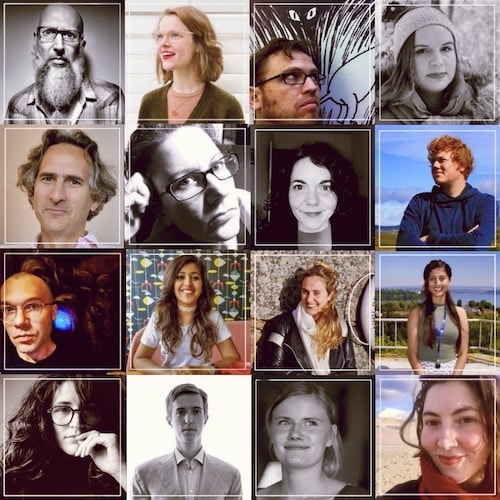Like most anthropologists, we have been watching events unfold at Harvard University’s anthropology department over the past weeks: accusations of abuse; letters in support of the man accused of abuse, followed by the oh-so-predictable retractions of signatures from that letter of support after the filing of the lawsuit was published; letters in support of the survivors; therapists handing over private patient notes to the university administration, and lots of hand-wringing. Like most, we are disappointed and outraged, but not surprised. It feels hard to remain optimistic about academia when faced with the sordid details of the case and the apparent institutional complicity in hushing it up. It is not like this did not happen before. Abuse of power in academia is both long-standing and deep-rooted, and pointing it out is still usually taken as ‘fouling the nest’, with all the usual negative consequences for one’s career.
Harvard is by no means a new or isolated case (nor is this a problem in anthropology only). We all know or know of academics who have been accused of sexual abuse, or of abuse of power and bullying, who are not only still in their jobs, but also publicly fêted by their former students and colleagues. Moreover, academic precariousness makes it difficult to speak up. The insidious power of academia and its prestige economy is precisely to keep us bound up in relations of insecurity that feed and reinforce these hierarchies. We, too, have felt the pull of charismatic elders, the glow that comes from being among the chosen disciples. In other words: We are made to lean into our own abuse, for that is the price of receiving a degree, getting a recommendation for a job, forging a future.
And so we watched with admiration and in solidarity all the courageous women academics who dared to speak up. Behind closed doors, some will doubtlessly say that the women who came forward ought to have had the wherewithal to withstand and rebuke their abusers (or punch them in the face). And yet, how many of us — women academics, and others whose bodies and presence in the world are maligned and subjected to scrutiny and violence because of their gender identity, sexuality, ethnicity, class, health, or (dis-)ability — must submit daily to such forms of abuse because we have no recourse to the same power as our abusers.
If we only seek to take out the big wo/man at the top, it leaves the structures in place that put them there and continue to shield them. Tackling those structures means looking at how power and networks of dependency and obligation are woven into academic systems, and how we can collectively create new networks and structures less predicated on hierarchy and exploitation. If the problem is structural, remedies must be structural, too. The responsibility to redress the problem must therefore lie with all of us who work in, and professionally identify with academia.
The ‘all of us’ is misleading, though — those carrying the fight forward at the moment are also the most vulnerable in this system: not the tenured stars who signed the initial letter of support, but the precariously employed. Again: hierarchies and abuse should concern all of us, but impact some of us more unequally than others. Also, while there’s a lot of finger-pointing against US universities going on at the moment, let’s not forget that stifling hierarchies, networks of dependency, and abuse of power are also rife within European academia, with even much less of a public debate going on (though there is a bit of movement in some aspects, see #ichbinhanna in Germany).
After all this, is it maybe too optimistic to still think of anthropology as a way of life? That if we practice a discipline which strives to be predicated on trust-building, that we can trust other anthropologists? That the careful ethical considerations which are never far from our thoughts in the field might also permeate our offices and classrooms? Unfortunately, we know that, often, the self-proclaimed radical leftists are the ones who get their students to buy them dinner, that those who shout the loudest about justice are the ones quietly removing graduate students from grant applications they worked on, or that they who publicly stand against violence against women are the ones firing their protégées for getting pregnant. Are we maybe too invested in the idea that anthropology should be a basis from which to build a better world? But if not for that, what else is anthropology for?
How can we contribute to form a larger, more resistant core, and create networks of support and solidarity, especially for those most vulnerable to (sexualised, gendered, classed, racialised) abuse? At Allegra, we address and embrace our Allies here on this platform through care reviews, open calls for contributions, and collaborative ways of working together. We still believe anthropology can be retooled and remade, and become the vanguard of radically rethinking what academia is and what it does in the world.
But beyond fuzzy and warm aspirational words of solidarity and support, what can we do?
We suggest three areas of intervention. Firstly, we need to admit anthropology has a problem with power and abuse. This reckoning entails investing in robust reporting and accountability measures, not only within our institutions, but our professional associations as well (we’ll be watching EASA’s newly formed Integrity Committee closely). It also means talking about cases of abuse openly. When controversy erupted on #anthrotwitter a few years ago in relation to the formerly open access journal HAU, we felt the need to discuss, analyse and reflect. That debate made it clear that dysfunctional and harmful structures had been entrenched that went beyond one ‘problematic’ individual. We need trustworthy whistleblowing mechanisms and public debate.
Secondly, we need to address the way anthropology produces knowledge. A start is reflecting critically about citation practices, as others have eloquently argued, but we need to start citing differently in practice as well. This might mean pushing back against reviewers and editors who demand proper deference to the canon, and it might also mean pushing ourselves to think beyond our ‘go-to’ references, and it will definitely take a long time for closed circles of citation to be broken, but it’s vital if we are to break free from the rockstar academic cults that have arisen. Related to this, we also need to think about open access beyond questions of ‘green and gold’ access, and embrace the freedom and integrity that open access promises. This, of course, is also a struggle: publishing in ‘high impact’ journals is often demanded by university administrators and ranking systems. But again, the symbolic power wielded by a handful of journals is part of what enables power to be used unjustly in anthropology and beyond.
Thirdly, we need to change the way more senior anthropologists recommend those junior to them for jobs and grants. What the Harvard case has underlined again is the weight of networks and patronage, especially in a small field such as anthropology (and kudos to those who did the legwork and analysed this properly). One particularly twisted academic instrument that ensures that silence prevails is the recommendation letter. Granted, at MA and PhD level a recommendation letter can help candidates with less linear academic trajectories gain access to study programmes they might otherwise not. But at post-PhD level the weight of obligations kicks in — a letter here serves not just to filter out ‘good’ candidates from ‘bad’ in a tightening job market, but it also demonstrates the ‘academic pedigree’ of each candidate and perpetuates networks of obligation and dependency — as exemplified in Paula Chakravartty’s scathing account of her experience at NYU. Our esteemed professional associations, EASA, ASA, GAA, AAA, and WCAA, IUAES, and all others, could discuss at their next meetings how letters of recommendations for (post-PhD) job hires are enabling toxic patronage, relations of dependency, and exclusionary networks that are unjust and constrain academic diversity — and even pass a motion condemning their use?
We need to keep asking the right questions and reflecting on this thing called anthropology, and the standards of practice, ethics, and care we should rightfully demand of it and its practitioners. We need a different anthropology. One that confronts abuse and abusers, that creates knowledge democratically, and that celebrates great scholarship not accrued fame.
We remain, despite all, radically optimistic.





